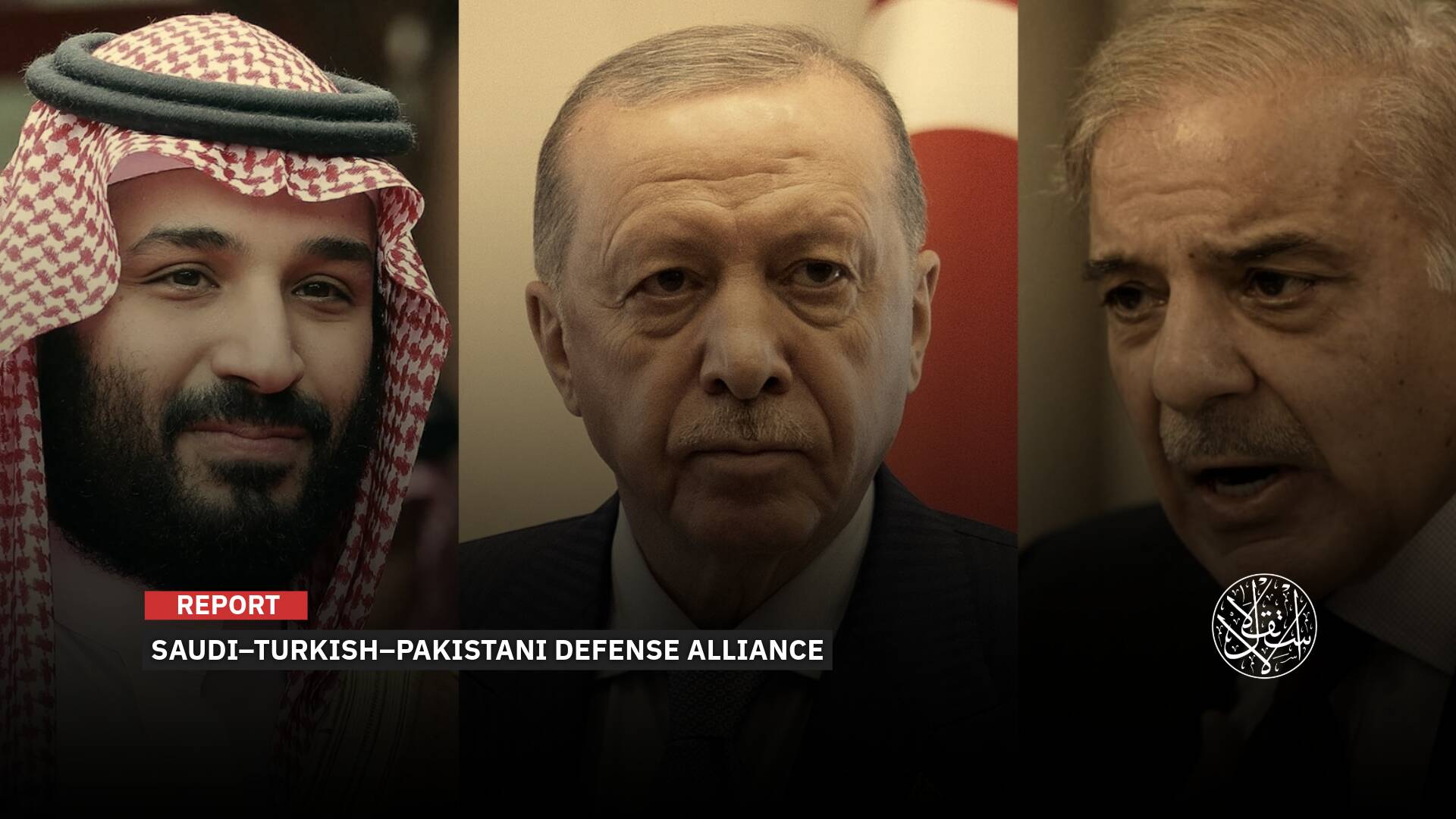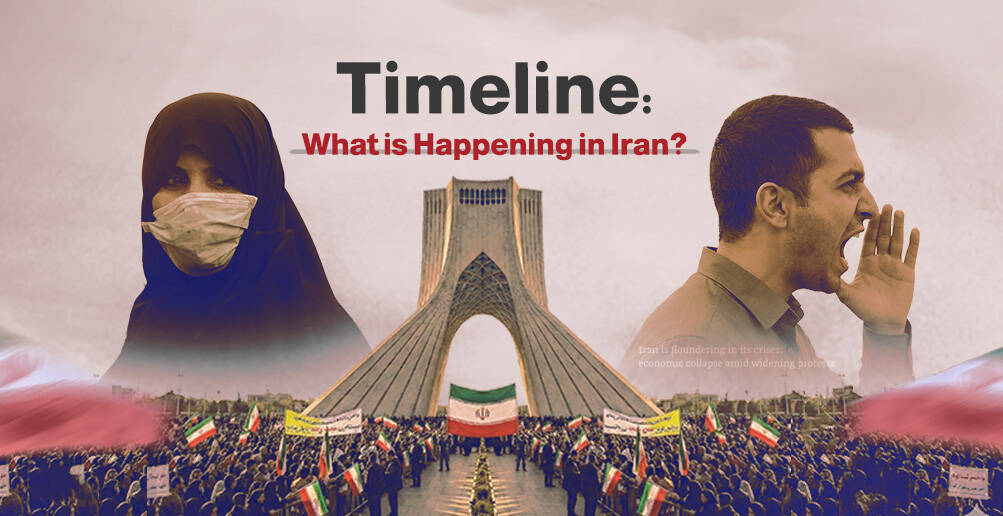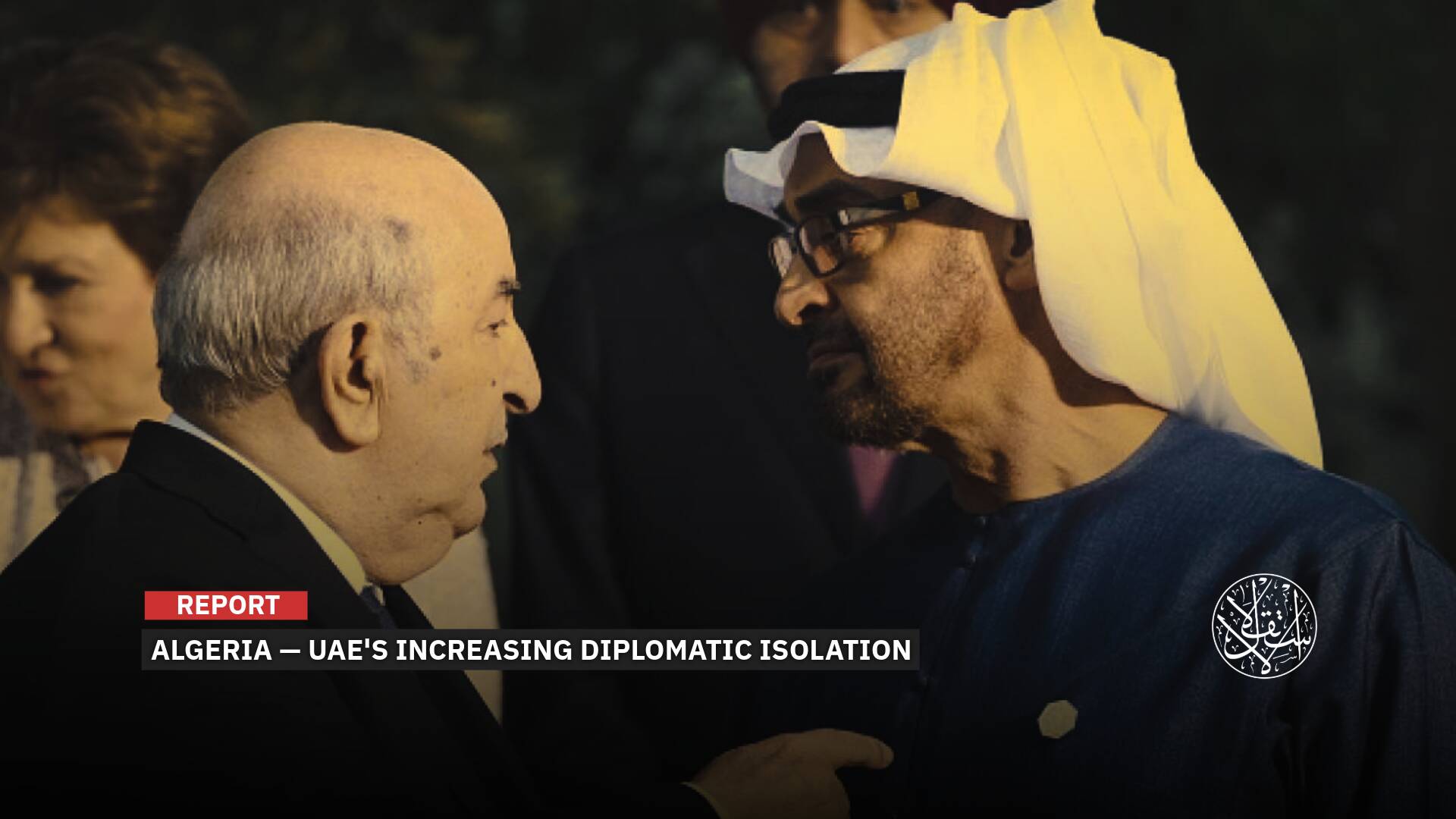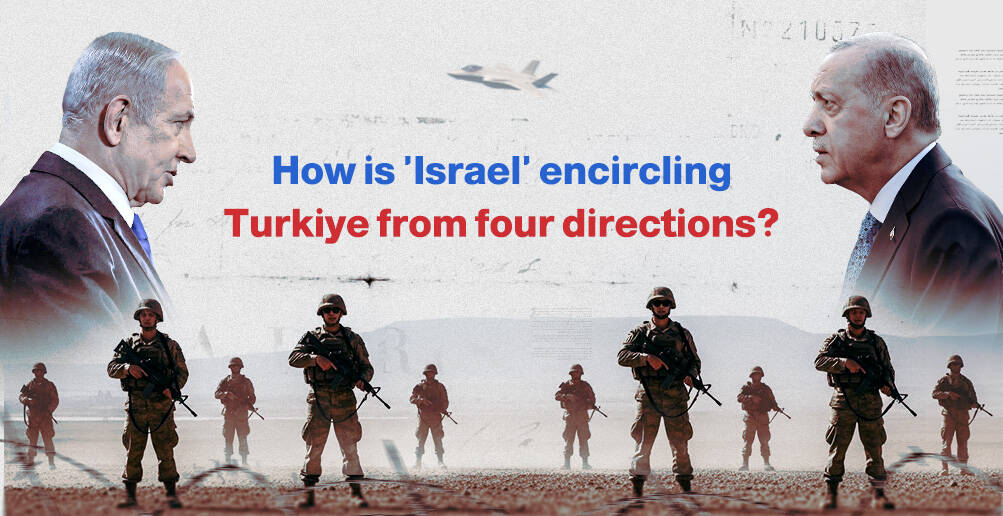Johnnie Moore: The Pro-’Israel’ Pastor Turning His Back on Besieged Gaza

Johnnie Moore describes himself as an evangelical friend of “Israel.”
In a move raising serious concerns, the so-called “Gaza Humanitarian Foundation”—funded and supported by Washington and Tel Aviv—was handed over to American evangelical pastor Johnnie Moore, a close ally of Donald Trump, on June 4, 2025.
This shift is more than a routine leadership change; it signals a dangerous turn in which the fate of Gaza’s population is placed under the authority of a man known for justifying Israeli genocide and promoting a hardline theological vision of Israeli supremacy.
From day one, Moore presented himself as a “reformer” of the aid landscape, ignoring Palestinian civil society organizations that best understand the urgent needs on the ground.
Rather than build trust with established humanitarian actors, he turned to mercenaries and private relations firms, framing the deadly aid distribution massacre—where over 100 Palestinians were killed near Israeli guard posts—as merely the beginning of a long reconstruction journey.
Since May 27, 2025, and outside the oversight of the UN and global aid organizations, the Israeli Occupation has begun distributing humanitarian aid through the “Gaza Humanitarian Foundation”—an entity backed by the U.S. and “Israel” but rejected by the United Nations.
Since March 2, 2025, “Israel” has allowed only limited aid trucks through the “Kerem Shalom” crossing it controls east of Rafah, even though Gaza requires at least 500 trucks per day to meet basic needs.
Moore’s real mission appears to have little to do with food or shelter. Instead, it’s about exploiting the humanitarian disaster to push a political and religious agenda that empties aid efforts of any real meaning. So who is this man—and why was he chosen to lead such a critical operation?

Johnnie Moore’s Roots
Born in 1983, Johnnie Moore is an American evangelical pastor closely tied to far-right circles in the United States, particularly those connected to Donald Trump’s political base.
He pursued his education at Liberty University in Virginia, a private Christian institution known for teaching religious and social sciences from a conservative evangelical perspective. There, he earned both his bachelor's and master’s degrees in religious studies.
Moore was deeply influenced by the teachings of Jerry Falwell Sr. (1933–2007), a prominent Baptist preacher, televangelist, and a leading figure in Christian Zionism. Falwell was notorious for his hostility toward Islam and the Prophet Muhammad (PBUH), and he played a major role in shaping the Christian right in America.
Falwell founded the Thomas Road Baptist Church in Lynchburg, Virginia, as well as the Lynchburg Christian Academy—later renamed Liberty Christian Academy—where Moore absorbed much of his ideological foundation. During his formative years, Moore often accompanied Falwell on religious missions, cementing his position as a devoted follower of his mentor’s worldview.

Moore’s Career Path
Johnnie Moore launched his career immediately after graduating from Liberty University, where he began as campus pastor before quickly rising to become the university’s Senior Vice President for Communications.
In that role, he headed the university staff and served as its permanent evangelical speaker—making him a familiar face in the evangelical academic scene.
His major turning point came when his mentor, Jerry Falwell, appointed him as his special assistant. That role marked Moore’s real entry into the world of political and religious influence, taking him beyond education and straight into the corridors of American policymaking under the banner of politicized faith.
Moore later shifted into religious media, becoming Vice President of Faith Content at United Artists Media Group in Hollywood, a company focused on marketing evangelical narratives through mainstream entertainment.
He also served as President of the Christian Leaders Conference, an evangelical-Zionist gathering that promotes support for “Israel” as part of a religious belief in the End Times.
His influence expanded further as he joined several powerful American institutions, including Concordia University in California, where he held an academic fellowship, and the Aspen Institute, known for shaping policy among political and cultural elites.
In 2017, Moore gained national attention as a spokesperson for the controversial Museum of the Bible in Washington, D.C., which drew criticism for pushing biblical narratives that aligned closely with conservative evangelical ideology.
Key Milestones
Among Moore’s most notable roles was his appointment to the U.S. Commission on International Religious Freedom (USCIRF) during Trump’s first term—a position later renewed under President Joe Biden, reflecting his enduring influence across party lines.
One of his most significant affiliations has been with the International Fellowship of Christians and Jews, a fundraising group that supports Jewish migration to “Israel” and promotes religious cooperation steeped more in Zionist theology than genuine interfaith dialogue.
Moore also joined My Faith Votes, a conservative Christian network working to inject evangelical-Zionist narratives into U.S. and global politics.
Beyond his pastoral work, Moore is also a businessman. He founded KAIROS, a public relations and campaign management firm specializing in political and religious messaging, with strong ties to pro-”Israel” governments and institutions.
Moore remains President of the Christian Leaders Conference—a group with clear Zionist leanings that openly embraces End Times theology and the concept of “Armageddon,” a belief that sees “Israel’s domination” over its neighbors as a prophetic step toward the return of Christ, according to fundamentalist evangelical interpretations.

China and Iran in Moore’s Crosshairs
Johnnie Moore’s foreign policy stance has long aligned with hardline views—especially when it comes to China and Iran.
Since 2017, Moore has openly targeted Beijing. In a joint op-ed with Jewish Rabbi Abraham Cooper published in Newsweek, he accused Chinese President Xi Jinping of persecuting Uyghur Muslims and called out China for human rights violations.
While serving on the U.S. Commission on International Religious Freedom, Moore recommended that China remain designated as a “Country of Particular Concern”—the most severe classification under U.S. law.
In May 2021, Beijing responded by banning Moore and his family from entering mainland China, Hong Kong, and Macau, accusing him of “promoting religious division.” Moore called the travel ban a “badge of honor” and framed it as confirmation of his commitment to religious freedom.
He also became highly active during the rise of ISIS in 2014, warning from Capitol Hill about what he described as an “existential threat” to Christians in Iraq and Syria. That same year, he traveled across the Middle East to document testimonies of survivors and helped raise over $25 million in aid.
In 2015, Moore coordinated the evacuation of Christian families to Slovakia, describing the threat they faced as a once-in-a-millennium crisis.
Moore has also placed Iran at the center of his ideological opposition, repeatedly calling on the Iranian people to rise up against their government. He harshly criticized the 2015 nuclear deal, claiming it gave the regime a lifeline and heightened the threat to both “Israel” and America’s regional allies.

Moore’s Middle East Footprint
Johnnie Moore has played an active role in promoting the narrative of “religious tolerance”—a slogan increasingly adopted by authoritarian regimes in the Middle East seeking international legitimacy.
His efforts were particularly visible during the wave of normalization with the Israeli Occupation and the emergence of new regional alliances against common adversaries like Iran.
In 2017, Moore appeared at a press conference organized by the Museum of Tolerance in Los Angeles, championing a message of anti-bigotry—while simultaneously deepening ties with regional governments accused of systematic repression of minorities and dissent.
Later, he helped draft what became known as the Bahrain Declaration, a public-relations statement promoting religious freedom. The declaration was immediately followed by a controversial interfaith delegation to Occupied Jerusalem—led by Moore—shortly after the U.S. moved its embassy to the city. The visit was widely criticized as a symbolic act of normalization under a religious pretext.
As one of Donald Trump’s close evangelical advisers, Moore also met with Saudi Crown Prince Mohammed bin Salman in 2018 to discuss human rights and the killing of journalist Jamal Khashoggi—yet issued no meaningful criticism of the Kingdom’s record.
On the contrary, Moore praised what he called Saudi Arabia’s “reform agenda” and voiced strong support for Vision 2030, despite the wave of crackdowns and arrests targeting opposition figures that accompanied it.
In the same year, Moore joined an evangelical delegation led by Pastor Joel C. Rosenberg on an official visit to the UAE, where they met top Emirati officials. The trip was portrayed as part of the “Abrahamic Alliance International”—a branding campaign used by Abu Dhabi to justify closer political and security ties with “Israel.”
Moore also participated in “tolerance” panels during UAE-sponsored events in partnership with the Anti-Defamation League (ADL)—a staunchly pro-”Israel” U.S. organization known for working to silence criticism of Israeli policy.
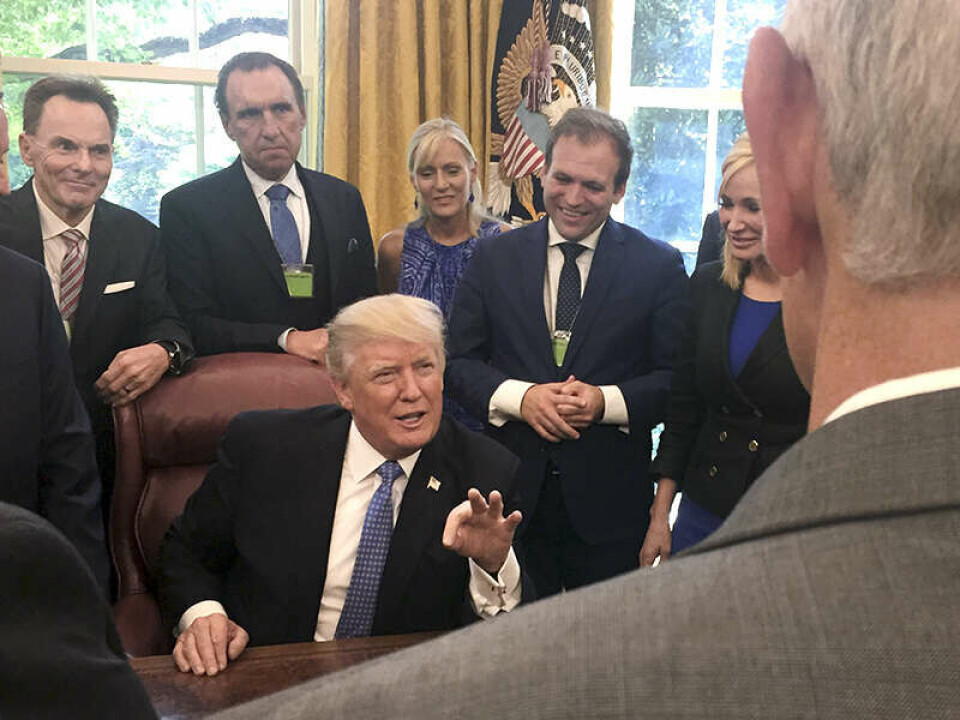
Jordan and Egypt
Moore’s activities also extended to Jordan, where he praised King Abdullah II for his role in “interfaith dialogue.” He also visited Azerbaijan and described its president, Ilham Aliyev, as a “model of peaceful coexistence,” despite human rights accusations against Aliyev’s government for suppressing freedoms.
In Pakistan, Moore tried to position himself as a defender of religious freedoms. He called for the release of an 82-year-old Muslim prisoner of conscience and commended the government for arresting a figure designated as a terrorist.
He also defended the rights of Hindus in India, even though he remained silent on the persecution of Muslims under the far-right Prime Minister Narendra Modi, a close ally of U.S. right-wing movements.
In Egypt, Moore participated in an evangelical delegation that met with government officials in 2019 and was an official guest of the head of the Egyptian regime Abdel Fattah el-Sisi at the opening of the largest cathedral in the Middle East in the new administrative capital.
This event was widely used to improve the regime’s image amid broad criticism of its repression of religious and political freedoms.
Through these tours, Johnnie Moore’s trips across the Middle East turned into Private Relations campaigns wrapped in political projects and strategic alliances under religious and humanitarian cover.
This occurred at a time when human rights voices were silenced and slogans of tolerance were exploited to market regimes involved in systematic abuses, while preparing Arab and Muslim public opinion to accept normalization with the Israeli Occupation state.
Trump and Netanyahu
Johnnie Moore has remained a close ally of Donald Trump since joining the Evangelical Executive Advisory Board of Trump’s first presidential campaign in 2016.
He justified his support by saying Trump was the only candidate truly committed to religious freedom.
In 2017, he posted a photo showing him praying with Trump and spiritual advisers in the Oval Office, commenting, “What an honor it is to pray for the President in the Oval Office.”
This closeness extended to Israeli Prime Minister Benjamin Netanyahu, with Moore describing himself as the “evangelical friend of Israel.”
He claims that “anti-Zionism is anti-Semitism” and insists that evangelical support for “Israel” is “based on geopolitical calculations, not theology.”
According to his statements to Reuters, Moore was a key figure pushing the Trump administration to move the U.S. embassy to Occupied Jerusalem and sign the Abraham Accords in 2017.
He announced that these steps would not have happened without evangelical pressure and led a multi-faith peace delegation on a “pilgrimage” to the occupied city shortly after the embassy move.
Moore’s position on the Israeli aggression on Gaza since October 7, 2023, aligns with this discourse.
Three months after the start of the genocide, he visited “Israel” and wrote on X: “Never have I seen such horror. This is about good & evil,” reinforcing the Israeli narrative without a clear condemnation of crimes against Palestinian civilians.
On February 5, 2025, Moore endorsed a proposal to place Gaza under direct U.S. administration, writing: “President Trump always sees war through the eyes of its human cost, & he thinks creatively — never bound by conventional wisdom. He stops wars & makes.”
“The USA will take full responsibility for future of Gaza, giving everyone hope & a future.”
On May 26, 2025, he criticized the United Nations, urging it to work with America instead of criticizing “Israel,” reflecting how the American pastor’s rhetoric echoes the agendas of Tel Aviv and Washington at the expense of Palestinian rights.
Sources
- Israel-backed Gaza delivery group names US evangelical leader as chair
- Gaza Humanitarian Foundation taps US Evangelical leader Johnnie Moore as new chairman
- Who is Johnnie Moore, Gaza Humanitarian Foundation's new chief?
- He Attended Prayer Meetings in the White House. Now He’s Chairman of a Gaza Aid Group.
- Gaza Humanitarian Foundation appoints US evangelical leader who denied mass killings as chief


